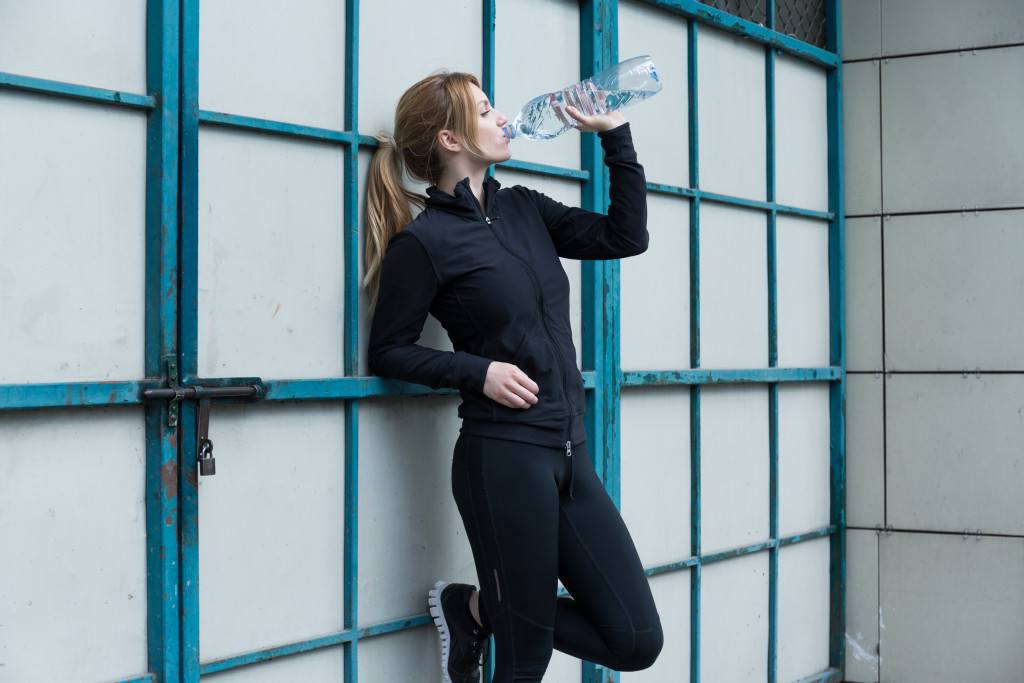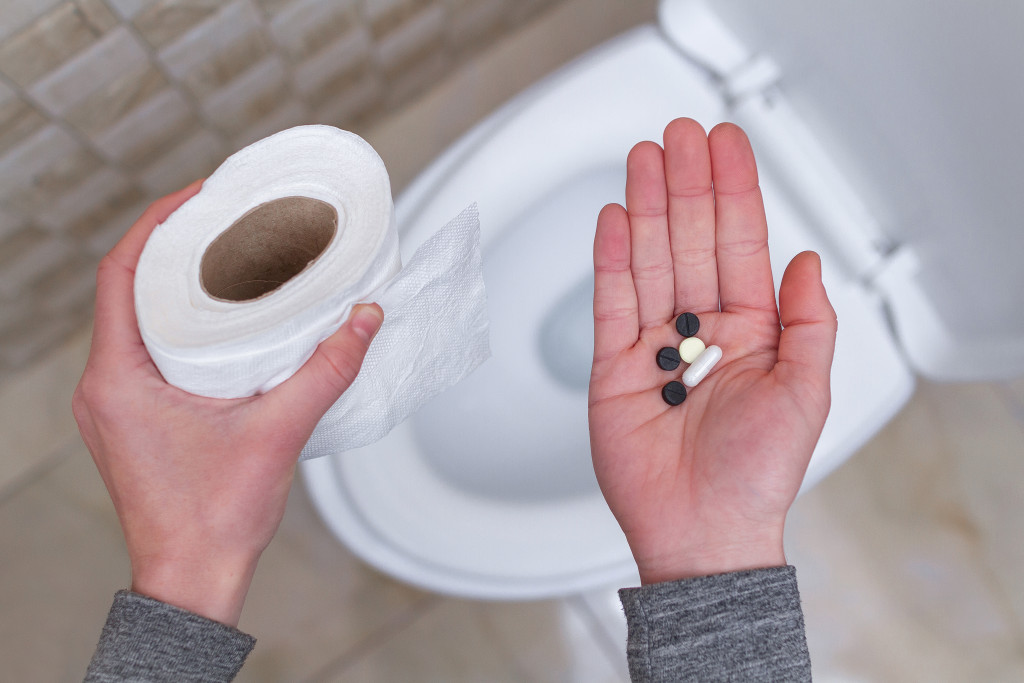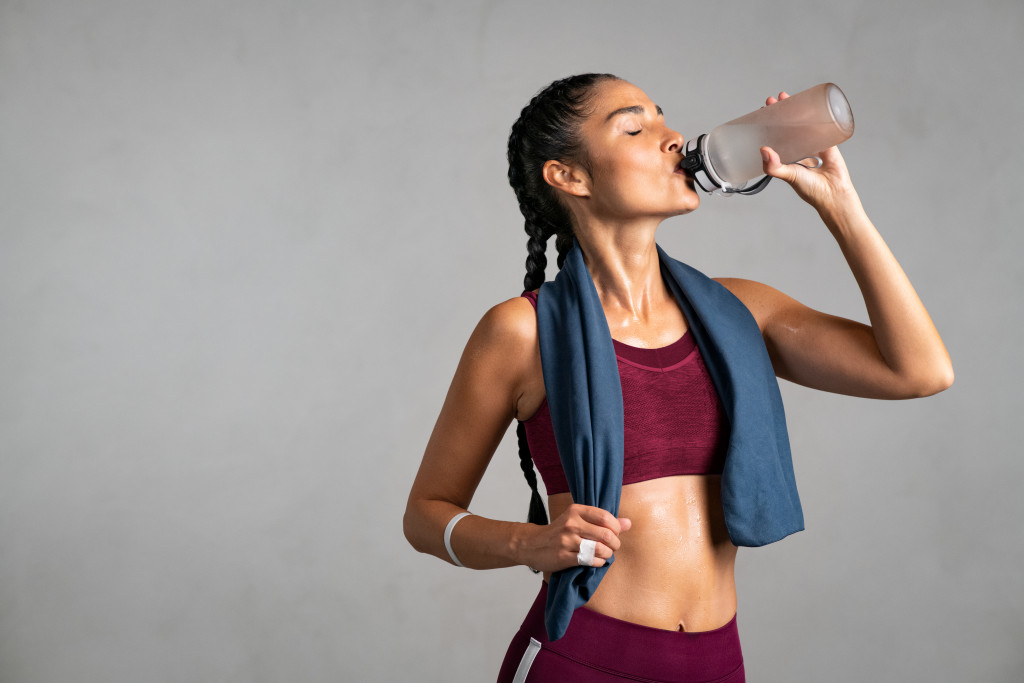- Staying hydrated is crucial for athletes to perform at their best and prevent dehydration-related health issues.
- Drink water before, during, and after exercise; aim for 16-20 oz two hours before and 7-10 oz every 10-20 minutes.
- Replenish electrolytes lost through sweating with sports drinks, coconut water, or electrolyte-enhanced water.
- Be aware of physical, cognitive, gastrointestinal, and advanced signs of dehydration.
- Plan a hydration strategy for longer workouts and consider IV hydration therapy for more efficient rehydration.
As an athlete, maintaining proper hydration is crucial for optimizing performance and preventing dehydration-related health issues. Dehydration can lead to fatigue, muscle cramps, decreased endurance, and even heat stroke. This guide will provide you with five tips to help you effectively deal with dehydration and stay hydrated as an athlete.
1. Drink Sufficient Water Before, During, and After Exercise
One of the most important steps in preventing dehydration is to drink sufficient water before, during, and after exercise. Aim to consume at least 16-20 ounces (500-600 ml) of water two hours before your workout or athletic event. During exercise, drink 7-10 ounces (200-300 ml) of water every 10-20 minutes to replace fluids lost through sweating. After your workout, continue hydrating by drinking water to replenish the water lost during physical activity.
It’s important to note that individual hydration needs may vary depending on factors such as exercise intensity, climate, and personal sweat rate. Consider monitoring your weight before and after exercise to determine your specific hydration needs. Aim to drink approximately 16-24 ounces (475-710 ml) of water for every pound lost.
2. Consume Electrolytes for Rehydration

When you sweat, you lose water and essential electrolytes such as sodium, potassium, and magnesium. Replenishing these electrolytes is crucial for proper rehydration. Consider consuming beverages or snacks that contain electrolytes during and after your workouts.
Sports drinks, coconut water, and electrolyte-enhanced water are readily available options that can help replenish electrolytes. Additionally, incorporating foods rich in these electrolytes, such as bananas, oranges, and leafy greens, into your post-workout meals or snacks can further support rehydration.
3. Be Aware of Hydration Signs and Symptoms
Being aware of the signs and symptoms of dehydration is essential for addressing it promptly. Make it a habit to regularly monitor your hydration status and promptly address any signs of dehydration to ensure optimal performance and well-being.
Here are the types of hydration signs and symptoms that you have to be aware of:
Physical Signs of Dehydration
Dehydration can have a significant impact on your physical appearance and well-being. One of the most notable signs of dehydration is dry skin. When your body doesn’t receive enough fluids, it tries to conserve water by reducing sweat production, resulting in dry, cracked skin. In addition, you may also experience chapped lips and a flushed face.
Another physical sign of dehydration is low blood pressure. When dehydrated, your body’s blood volume decreases, causing your blood pressure to drop. This can lead to dizziness, lightheadedness, and even fainting in severe cases.
Cognitive Signs of Dehydration
Dehydration doesn’t just affect your physical well-being; it can also impact your cognitive function. Studies have shown that even mild dehydration can lead to decreased concentration, impaired memory, and increased feelings of fatigue. These symptoms can significantly affect your daily performance and make it difficult to complete tasks efficiently.
Gastrointestinal Signs of Dehydration

Dehydration can also have a noticeable effect on your digestive system. One common gastrointestinal sign of dehydration is constipation. When dehydrated, your body tries to conserve water by absorbing more fluids from the colon, resulting in harder stools and difficulty passing them.
In addition, dehydration can also cause nausea and vomiting. This is because when your body is low on fluids, it activates the vomit response to try and get rid of any potential toxins that may be present in the stomach.
Advanced Signs of Dehydration
If dehydration is not addressed promptly, it can lead to more severe complications. These include heat exhaustion and heatstroke, both serious conditions requiring immediate medical attention. Heat exhaustion symptoms may include profuse sweating, rapid heart rate, fainting, and muscle cramps. If left untreated, this can progress to heatstroke, which can be life-threatening and cause organ damage.
Another advanced sign of dehydration is kidney failure. Dehydration can decrease blood flow to the kidneys, causing them to work harder and potentially resulting in permanent damage. It’s important to promptly address any signs of dehydration to prevent these advanced complications.
4. Plan Your Hydration Strategy for Longer Workouts
For longer workouts or athletic events lasting more than an hour, it’s crucial to have a well-planned hydration strategy. In addition to drinking water, consider incorporating carbohydrates and electrolytes to sustain energy levels and support hydration.
Sports gels, chews, or beverages designed for endurance athletes can provide a convenient source of carbohydrates and electrolytes. Experiment with different products during training sessions to determine what works best. It’s also important to practice your hydration strategy during training to ensure it is effective and well-tolerated before implementing it in competition.
5. Consider IV Hydration Therapy for Optimal Rehydration
Traditional hydration methods may not be sufficient to rehydrate the body fully in certain situations, such as intense training periods or extreme conditions. In such cases, considering intravenous (IV) hydration therapy can be viable. IV hydration therapy involves the administration of fluids, electrolytes, and vitamins directly into the bloodstream, ensuring rapid and efficient rehydration.
IV hydration therapy can benefit athletes who require quick recovery or need to replenish fluids and nutrients more effectively. However, it’s important to consult with a healthcare professional or a sports medicine expert before considering this treatment option to ensure it is appropriate for your needs.
In Summary
Proper hydration is essential for athletes to optimize performance and prevent dehydration-related issues. By drinking sufficient water before, during, and after exercise, consuming electrolytes for rehydration, being aware of hydration signs and symptoms, planning hydration strategies for longer workouts, and considering IV hydration therapy when necessary, you can effectively deal with dehydration as an athlete. Remember that individual hydration needs may vary, so listening to your body and adjusting your hydration strategies is important.

